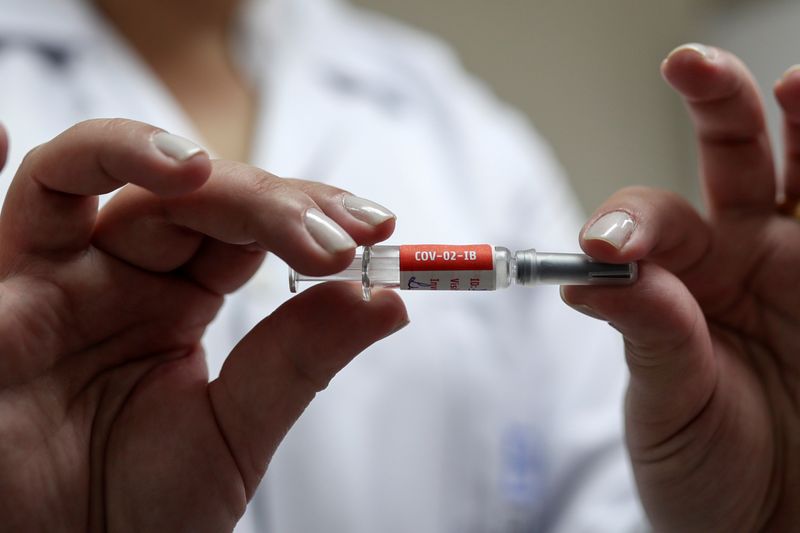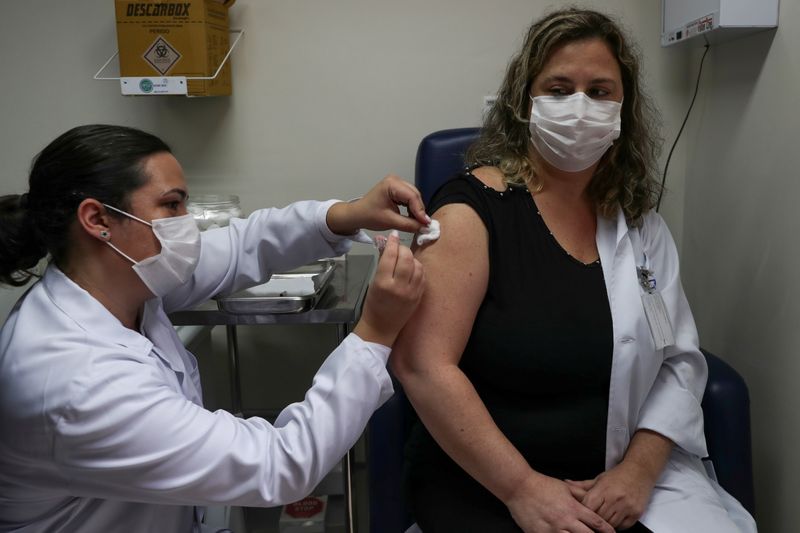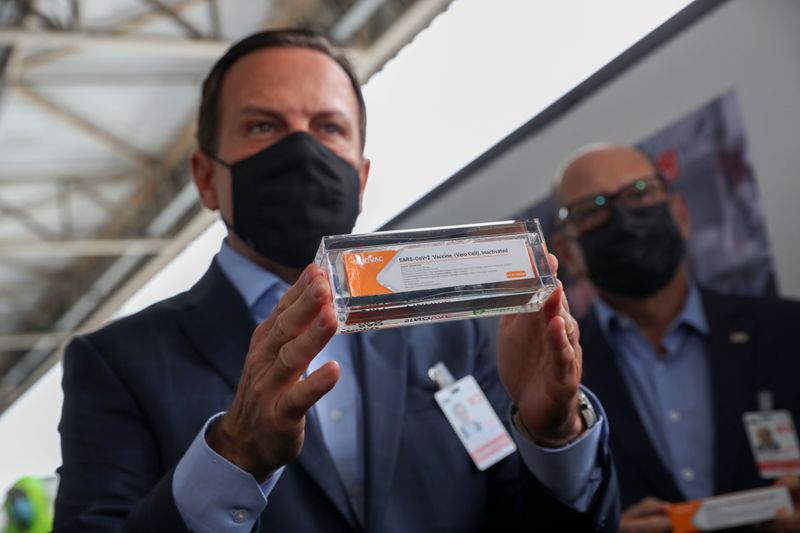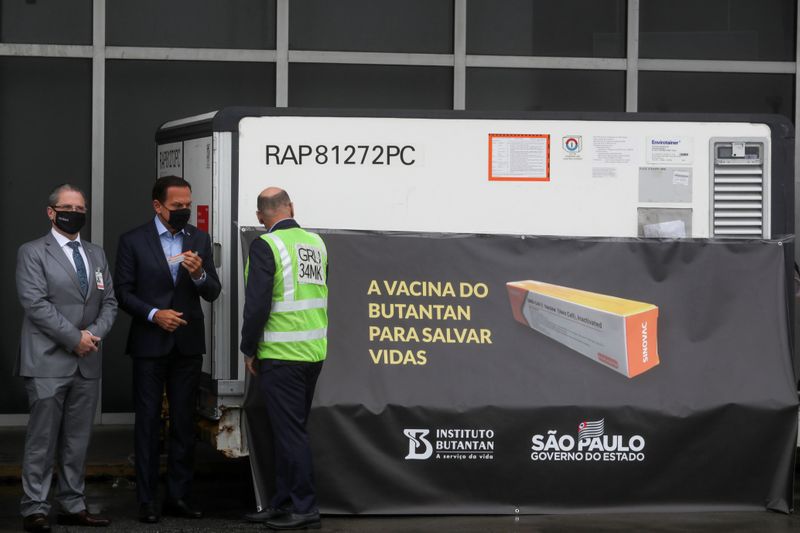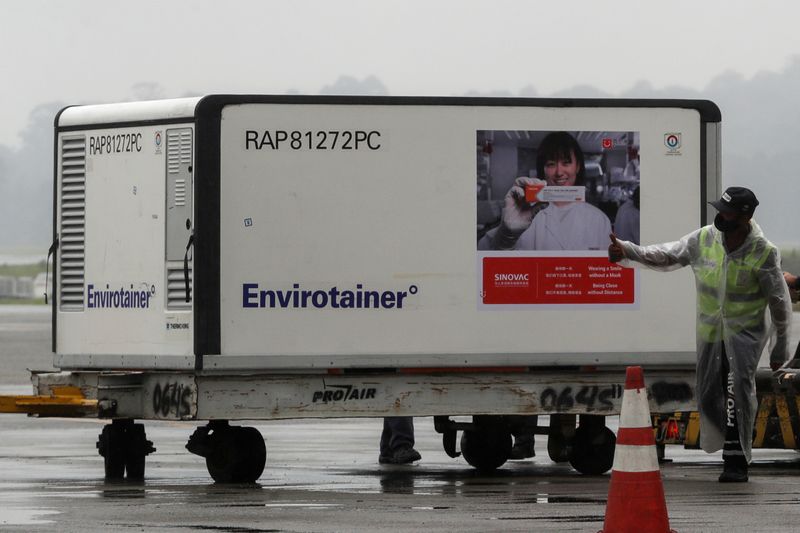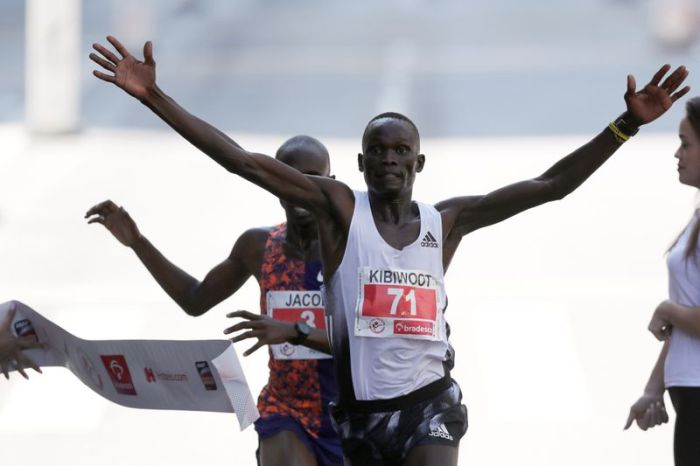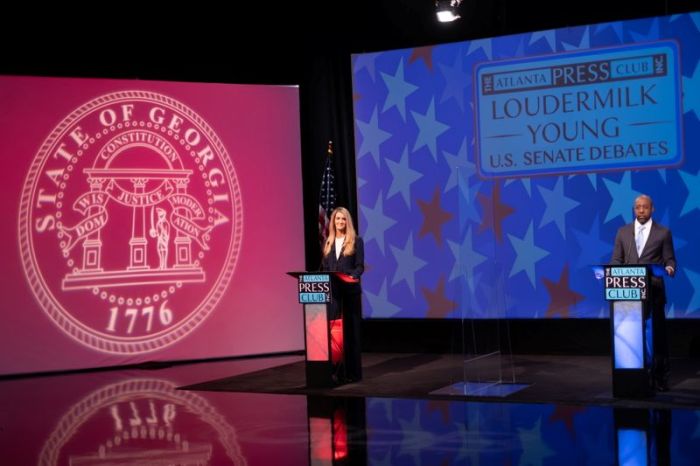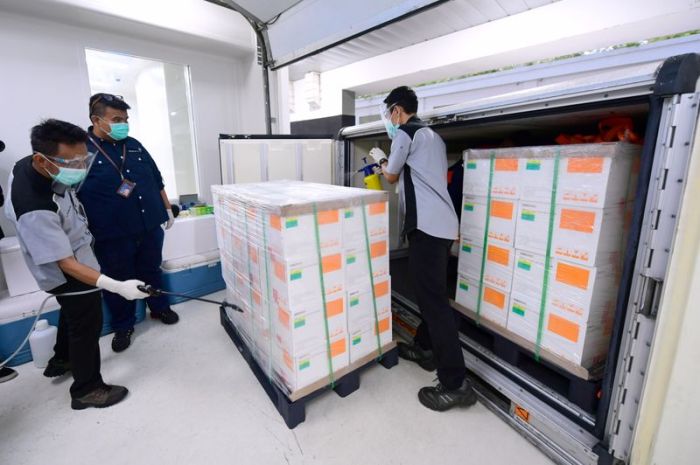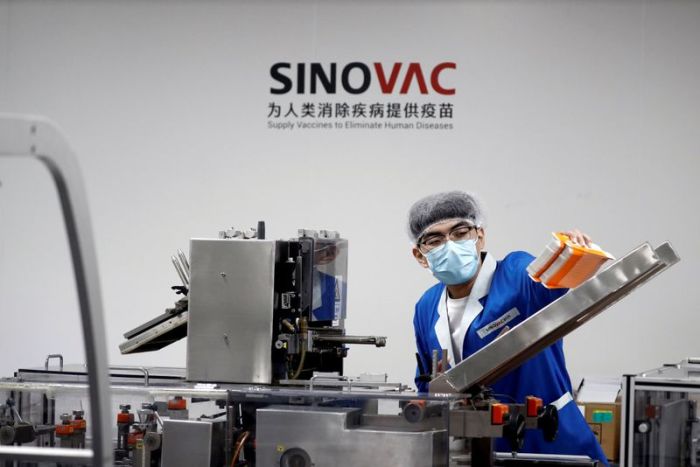RIO DE JANEIRO (Reuters) – Brazil’s leader Jair Bolsonaro is moving to assert control of the nation’s independent health regulator, Anvisa, a move some health experts fear will politicize the agency and give the president, one of the world’s most prominent coronavirus skeptics, free rein over vaccine approvals.
Bolsonaro on Nov. 12 nominated a retired soldier, Jorge Luiz Kormann, to take one of Anvisa’s five director posts. Kormann, a former lieutenant-colonel with no background in medicine or vaccine development, would lead the unit charged with greenlighting vaccines. If he is confirmed by Brazil’s Senate, as is expected, Bolsonaro allies would occupy three of Anvisa’s five directorships, giving them a majority in all decisions taken by the agency.
“Anvisa is being stacked with directors who are allied to Bolsonaro’s denialist and irresponsible stance on public health,” said Alexandre Padilha, a former health minister and leftist federal lawmaker. “He wants to pass on a political message that only the vaccines he wants will be incorporated into the public health system.”
Reuters interviewed more than a dozen current and former officials, state governors and lawmakers about Bolsonaro’s plans for Anvisa, an internationally respected regulator whose role in approving drugs, devices and treatments is similar to that of the U.S. Food and Drug Administration.
Many said they worry the president’s growing influence at Anvisa is politicizing the regulator, which will sign off on various different vaccines being tested in Brazil. Although they cited no specific evidence, some fear that Bolsonaro, with his eye on re-election in 2022, could use Anvisa approvals to speed vaccines to allies and withhold them from rivals.
Others fear that Bolsonaro’s hardening opposition to coronavirus vaccines will seep into Anvisa, undermine its credibility and stoke growing anti-vaccine fervor in Latin America’s largest country.
Anvisa said it was Bolsonaro’s prerogative to nominate directors, and the Senate’s job to confirm them. “Anvisa has no … participation in this process,” it said in a statement. It declined further comment.
The president’s office did not respond to requests for comment. The Health Ministry, where Kormann currently works as assistant deputy health minister, also declined to comment. Kormann did not respond to requests sent to his email.
Bolsonaro has repeatedly downplayed the severity of COVID-19 and touted the unproven malaria drug hydroxychloroquine, which he took when he contracted coronavirus in July. Late last month, he said he would not take any coronavirus vaccine that becomes available. Bolsonaro said refusal was his “right,” and that he did not expect Congress to mandate immunizations.
Public support for COVID-19 vaccinations is falling across Brazil, according to a November survey of residents of four major cities by polling agency Datafolha. In São Paulo, for example, 72% of respondents said they would get vaccinated, down 7 points from the previous month, while support for mandatory immunization fell 14 points to 58%.
Silvia Waiapi, an army second lieutenant who was until February the Health Ministry’s secretary for indigenous Brazilians, said she expects Kormann’s military background to strengthen Anvisa.
“The president is establishing order in the country and we see that things are being managed with extreme care at Anvisa,” Waiapi told Reuters.
However, Univisa, the association of Anvisa workers, and Sinagencias, the national union of regulatory agency employees, have both publicly opposed Kormann’s nomination due to his lack of relevant experience.
Brazilian presidents have always named Anvisa’s directors. But the agency traditionally has acted independently, and its directors have been chosen for their expertise, said current and former officials interviewed by Reuters.
LOYAL SOLDIER
In addition to Kormann’s inexperience, the sources interviewed by Reuters said they also worry about his proximity to Bolsonaro.
Reuters reviewed exclusive internal Health Ministry WhatsApp chats from June, when the ministry was engulfed in scandal after it abruptly stopped publishing comprehensive COVID-19 case and death data on its website. Kormann played a central role in the ministry’s effort to withhold those statistics, the chats show.
When the pandemic first hit, Bolsonaro, a former army captain, pushed out expert Health Ministry officials who had advocated strict measures to control the virus. He replaced them with soldiers with no public health experience, setting off a chain of events that has saddled Brazil with the world’s second-highest COVID-19 death toll: nearly 177,000 fatalities and more than 6.6 million confirmed infections.
Now, as the focus shifts to vaccine approval, Bolsonaro appears to be following the same playbook at Anvisa, several sources said. Nominating Kormann could allow Bolsonaro to dictate its vaccine policy.
For example, Bolsonaro has repeatedly criticized a Chinese vaccine, developed by Sinovac Biotech Ltd, that is currently being late-stage tested in São Paulo state. An unabashed fan of outgoing U.S. President Donald Trump, he has mimicked his American counterpart by condemning China as the source of the pandemic.
Joao Doria, the governor of São Paulo, is widely seen as a potential presidential rival to Bolsonaro in 2022. His state has purchased millions of doses of the Sinovac vaccine to inoculate São Paulo residents. But Anvisa must first sign off on the vaccine’s safety before immunizations can begin.
Bolsonaro has often sought to undermine the credibility of the Sinovac vaccine. In October, he quickly reversed an announcement by his Health Minister Eduardo Pazuello, an active-duty army general, who had told a gathering of state governors that the federal government planned to buy the Sinovac vaccine to include in Brazil’s national vaccination program.
Bolsonaro said Pazuello had been misinterpreted: “For sure, we will not buy the Chinese vaccine,” he said on social media on Oct. 21, responding to a supporter who had urged him not to buy the vaccine.
On Tuesday, the Health Ministry outlined its preliminary national immunization plan. The Sinovac vaccine was not listed among those it was exploring purchasing.
Bolsonaro’s administration already has a deal with AstraZeneca PLC to ensure supplies of its coronavirus vaccine. Other candidates include vaccines manufactured by Pfizer Inc and Janssen, a unit of Johnson & Johnson.
Sinovac did not respond to requests for comment. Pazuello did not respond to questions about whether he was misinterpreted, nor why Sinovac was left off the list.
Last month, the president celebrated when Anvisa temporarily halted the São Paulo Sinovac trial due to the suicide of a patient volunteer. The death was determined to be unrelated to the vaccine, and the trial quickly resumed. Still, Bolsonaro called the delay “another victory for Jair Bolsonaro.”
Doria, the São Paulo governor, did not respond to requests for comment. He recently told Brasilia news website Metropoles that Bolsonaro has too much sway at the health regulator.
“Today, there is suspicion that Anvisa could suffer political interference from the president and could fail to be an independent agency as it should be, as it must be,” Doria said in the interview published on Nov. 26.
DATA TAKEN DOWN
Bolsonaro already looms large at Anvisa, which is led by one of his allies, former Navy Rear Admiral Antonio Barra Torres. A trained surgeon, Barra Torres was confirmed on Oct. 20. Torres made news in March when he appeared alongside Bolsonaro at an outdoor political rally in Brasília. Neither wore a face mask.
Six sources told Reuters there had been much internal grumbling at Anvisa over a perceived failure by the regulator, under Barra Torres, to more forcefully dispute the president’s portrayal of hydroxychloroquine as a COVID-19 “cure.”
Anvisa did not respond to a request for comment.
Another Bolsonaro ally, Cristiane Jourdan, also was confirmed as a director on Oct. 20. A doctor and former hospital director, she has supported using hydroxychloroquine to treat COVID-19, two sources said. On her Instagram account, she posted a photo last year of herself with Bolsonaro, whom she referred to as “our legend.”
Anvisa did not make Barra Torres or Jourdan available for interviews. They did not respond to requests for comment sent to their email accounts.
In an interview with Reuters in late October, Barra Torres said Anvisa would always be guided by science.
“Us, the five directors, we’re not involved in any political issues,” he said.
Kormann arrived at the Health Ministry in May, part of a wave of military men appointed by the Bolsonaro administration. Once there, he quickly became entangled in controversy.
In early June, as Brazil’s coronavirus case load began to soar, the Health Ministry unexpectedly took offline from its website detailed public COVID-19 data that documented the epidemic over time by state and municipality. The move sparked public outrage. Within days, Brazil’s Supreme Court ordered the Ministry to reinstate that data as a matter of public safety.
Until now, little has been known about what led to that information being taken down.
Reuters viewed internal Health Ministry WhatsApp chats between Kormann and other officials. The messages showed that Kormann, acting on an order from a superior, directed them to remove the data.
The chats show that Kormann and his military bosses were alarmed by cumulative case and death totals that painted an increasingly grim picture of a pandemic that Bolsonaro had dismissed as a “little flu.” They wanted those cumulative figures removed and only the smaller daily tallies shown.
“Take down the CUMULATIVE data!!!” Kormann wrote at 5:23 p.m. on June 5, according to a screenshot of the conversation viewed by Reuters. That content had not been previously reported. Kormann made clear in the chats that he was acting at the behest of Health Minister Pazuello.
The Health Ministry did not respond to requests for comment or make Kormann or Pazuello available for comment. Pazuello did not respond to a request for comment sent to his email.
Within hours of Kormann’s June 5 directive, almost all COVID-19 statistics were gone from the website.
The next day, Bolsonaro defended the removal of the data, saying on Twitter that it “does not reflect the moment the country is in.”
On June 8, just three days after Kormann gave the order to take down the data, he was promoted to assistant deputy health minister.
A former Anvisa head said Kormann’s nomination to the health regulator shows “there is a military hierarchy” being installed there: “Bolsonaro is the commander in chief.”

